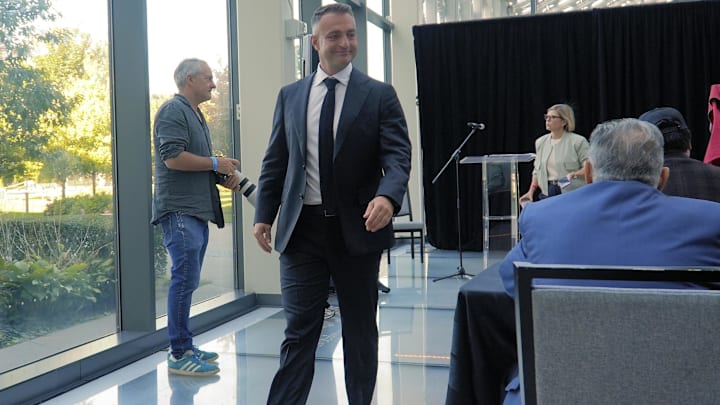This year's restricted free agency market was quite hazy, to say the least.
The Raptors faced their own saga with an RFA last offseason, as they navigated what to do with Immanuel Quickley. In the end, Toronto jumped the gun and extended IQ to a five-year deal worth an enormous amount of money, which in hindsight was likely too much. Fast forward one summer, and we saw four restricted free agents — Bulls guard Josh Giddey, 76ers forward Quentin Grimes, Nets scorer Cam Thomas, and Warriors wing Jonathan Kuminga — struggling to justify offers anywhere near IQ’s deal from last year.
Analysts pointed out that the IQ contract set a challenging tone in the RFA market, as players tried to make a case for similar extensions, but it proved difficult for many to do so.
In the latest edition of The People's Insider by Jake Fischer for Marc Stein's Substack (subscription required, link here), he discussed this topic further. He mentioned that: "None of them came away with a contract richer than Giddey's four-year deal with the Bulls that will pay him $25 million annually."
And circling back to the significance of the Toronto Raptors, Fischer also mentioned that while several teams are expected to have plenty of cap space for the next offseason, it shouldn't be surprising if that projected space "vanishes" before next summer. To that point, Fischer highlights how teams like the Raptors and Warriors took a different approach (and likely a growing trend in the NBA for years to come). They went all-in by acquiring their target free agent assets through trades and then extended them in-house soon after.
Did the Raptors define how to approach free agent pursuits?
The exact excerpt from Fischer's report is as follows: "It also remains to be seen how much potential cap space gets eaten up by in-season trades that add long-term salary or even lead to immediate extensions, as witnessed last February in Golden State (Jimmy Butler) and Toronto (Brandon Ingram)."
As Fischer details extensively in his piece, he predicts that it will be quite difficult for RFAs to secure deals in the $30 million range with their current teams. However, if an upcoming free agent is highly sought after by multiple NBA franchises — similar to Golden State and Toronto’s aggressive pursuits — the smarter move is to trade for the player directly. This way, teams can focus on extending the player's contract immediately, avoiding the uncertain and potentially complicated negotiations that can arise if they try to sign the player as a free agent.
Some bad examples come to my mind, like when the Knicks rushed into trading most of their assets for Carmelo Anthony during the season, even though they were the frontrunners to acquire him in the summer. But in today’s modern NBA landscape, if you really want a player’s services, it seems that biting the bullet on a trade and going from there is the most hassle-free way to get it done.
